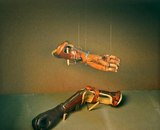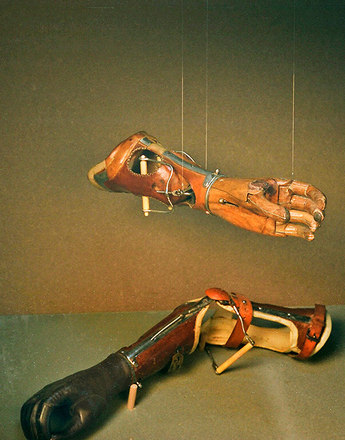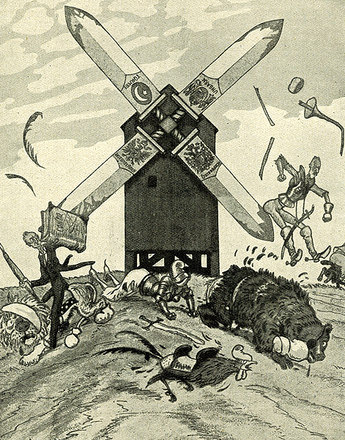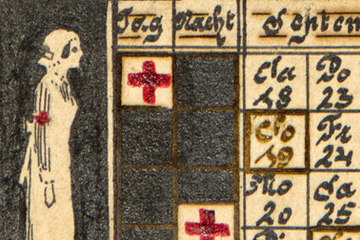During the First World War significant advances were made in many medical disciplines, which took advantage of the specific situation to collect scientific information and carry out research.
The demands that war made on medicine also brought in advances in a variety of medical processes and research, including blood transfusion, prosthetics, plastic surgery, and poison gas and epidemic research.
From the start of the war representatives of the medical profession pointed to the opportunity to obtain new medical information. Some saw the war as a massive experiment, a unique chance to clarify fundamental questions. Various disciplines, including surgery, internal medicine, bacteriology, hygiene and psychiatry shared this opinion.
The Austro-Hungarian front doctor Karl Kassowitz described the First World War as a “massive general function test of a large number of men” and an “incredible serial physiological experiment”.
Hygiene and epidemic researchers in particular hoped for new scientific findings that would have been difficult to obtain in peacetime. The German hygienist and tropical medicine specialist Carl Mense was enthusiastic about the opportunities offered by the war for his specialisation:
“The greatest imaginable experiment is taking place before our eyes. People from all walks of life are being thrown against one another and are living and fighting under the most unfavourable hygienic conditions. The world population thus constitutes a huge epidemiological experiment of a scale undreamed of by researchers.”
The results achieved with typhus research illustrate the extent to which the First World War advanced medicine, particularly bacteriology. Through careful observation of the patients in prisoner-of-war camps, it was possible to isolate lice as the sole carrier of typhus.
Another classic example of an advance in medicine was blood transfusion. It had been known before the war but for the first time there were enough donors among the troops to enable wounded soldiers to be given transfusions. By the end of the war, blood transfusion technique was so advanced that it became a routine procedure also used in civilian medicine.
In view of the advances made as a result of the war, which doctors after the war were so keen to point out, it might be thought that the First World War was a “success” at least in terms of medicine. Many areas of medical research and care suffered considerably, however, and even research objectives were determined to a large extent by military interests. It may be said that medicine was instrumentalised for the war rather than the war serving the interests of medicine.
Translation: Nick Somers
Dietrich, Elisabeth: Der andere Tod. Seuchen, Volkskrankheiten und Gesundheitswesen im Ersten Weltkrieg, in: Eisterer, Klaus/Steininger, Rolf (Hrsg.): Tirol und der Erste Weltkrieg, Innsbruck 2011, 255-275
Eckart, Wolfgang U./Gradmann, Christoph: Medizin im Ersten Weltkrieg, in: Spilker, Rolf/Ulrich, Bernd (Hrsg.): Der Tod als Maschinist. Der industrialisierte Krieg 1914-1918. Eine Ausstellung des Museums Industriekultur Osnabrück im Rahmen des Jubiläums „350 Jahre Westfälischer Friede“ 17. Mai – 23. August 1998. Katalog, Bramsche 1998, 203-215
Eckart, Wolfgang U./Gradmann, Christoph: Medizin, in: Hirschfeld, Gerhard/Krumeich, Gerd/Renz, Irina (Hrsg.): Enzyklopädie Erster Weltkrieg, Paderborn et al. 2009, 210-219
Hofer, Hans-Georg: Mobilisierte Medizin. Der Erste Weltkrieg und die Wiener Ärzteschaft, in: Pfoser, Alfred/Weigl, Andreas (Hrsg.): Im Epizentrum des Zusammenbruchs. Wien im Ersten Weltkrieg, Wien 2013, 302-309
Cooter, Roger/Sturdy, Steve: Of War, Medicine and Modernity: Introduction, in: dies u. Harrison, Mark (Hrsg.): War, Medicine and Modernity, Stroud 1998, 1-21
Quotes:
"massive general function test …“: Kassowitz, Karl: Der österreichisch-ungarische Truppenarzt an der Front, in: Volksgesundheit im Krieg. Bd. 6, Teil 1, 141, quoted from: Dietrich, Elisabeth: Der andere Tod. Seuchen, Volkskrankheiten und Gesundheitswesen im Ersten Weltkrieg, in: Eisterer, Klaus/Steininger, Rolf (Hrsg.): Tirol und der Erste Weltkrieg, Innsbruck 2011, 269 (Translation)
“The greatest imaginable experiment …“: Mense, Carl: Zum neuen Jahre, in: Archiv für Schiffs- und Tropen-Hygiene (1915), 19/1, quoted from: Eckart, Wolfgang U./Gradmann, Christoph: Medizin im Ersten Weltkrieg, in: Spilker, Rolf/Ulrich, Bernd (Hrsg.): Der Tod als Maschinist. Der industrialisierte Krieg 1914-1918. Eine Ausstellung des Museums Industriekultur Osnabrück im Rahmen des Jubiläums „350 Jahre Westfälischer Friede“ 17. Mai – 23. August 1998. Katalog, Bramsche 1998, 206 (Translation)










